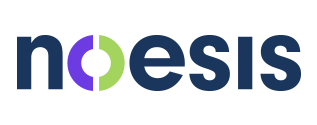The pandemic is over. No—not just yet. However, in the weeks and months ahead a new reality of how we live and work will emerge.
How do we thrive through this change? This series of five blogs will share simple, scientifically proven ways to build our capacity to grow from our experience. Ways to minimize the impact of upheaval on our wellbeing and enhance our ability to thrive.
Focus is one of five key activities that’s essential to practice to optimize our cognitive performance. When we experience deep and singular focus we feel ‘in flow’; we are fully immersed and engaged in one particular activity. When we’re focused, our brain secretes chemicals that strengthen neural connections – further improving our ability to pay attention. Scientists tell us multi-tasking is in fact a myth. Holding a prolonged focus on one thing well, is a bit like exercising a muscle: Use it. Or lose it!
Each of us finds focus differently. Some of us need quiet; a walk or breathing exercise. For others, it’s music, or white noise in a cafe. To strengthen our ability to focus, pay attention and avoid distractions, research recommends mindfulness practices. Meditation and other inward-looking mindful activity trains our brain to not be so easily distracted; it strengthens our brain’s braking system; stopping unwanted thoughts and stimuli from intruding on precious focus time.
To be mindful, focus on your senses, rather than thoughts. This is why deep slow breathing can be so effective as a mindful practice. Be aware of how you feel and how often you experience negative thoughts can alert you to the opportunity to change your perspective and better navigate what’s happening in the moment. As you focus on inner sensations, this grows the associated neurons in the brain. You will better sharpen attention, focus, emotional intelligence and cognitive abilities.
Spending time doing simple repetitive mechanical activities like knitting, sewing or painting are known to have a calming effect on our brain. Bilateral, coordinated, repetitive, precise hand movements require the brain to focus enough to shift attention away from conscious anxiety-producing thoughts. This helps us slip into a passive, calming brain state. An executive once shared that he found tying flies in preparation for fishing, to be an excellent mindful activity for lowering stress and increasing focus.
As we strive to thrive through change, leaders can help team members to focus: Promote mindful activities and share your personal mindful experiences. Ask for input on how to improve focus during work days and in meetings. Model your own best practices like daily planning and blocking focused work time when your brain is most productive. And, support people to also fully focus on things other than work – each day.


Recent Comments